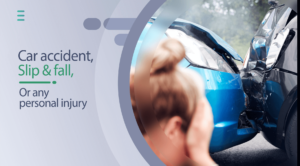Anyone that has chosen to steer a vehicle down the road, despite the absence of insurance, must be willing to accept the risks that are associated with that same task.
What are the recognized risks for anyone that has engaged in the act of driving without insurance?
The risk of suffering some type of injury, but faced to deal with the fact that you have no way to pay for any available treatment. Personal injury lawyer in Newmarket knows that the risk of having your rights limited, if you were to seek compensation for the harm done to you by another driver.
What additional risks could enter the picture, if traffic authorities were to discover that you had joined the ranks of the uninsured drivers?
You might get hit with the need to pay criminal or civil penalties. The size and nature of that penalty would depend on the rules in the state in which you had posed a risk to other motorists on the road. You might suffer a loss of your driving privileges. Your license could be suspended or revoked and you could become the target of a lawsuit
—You might hit a driver that was underinsured, and lacked a way to cover all of his or her losses. In an attempt to obtain needed funds, that driver’s efforts might include that of filing a complaint against you, based on your demonstration of negligence.
—Even in a no-fault state, you could face that possibility, if your actions had caused a sufficient level of damage.
Could you sue the other party, if you were to collide with a negligent motorist?
You might have a right to sue in some states, but not in all of them. There are some states that follow a “no pay, no play” policy. According to that policy, an uninsured driver has no right to sue, in hopes of obtaining money for non-economic losses.
Moreover, there are other states that have put a cap on the amount of money that any accident victim could receive, after suffering non-economic losses. That rule would apply to all personal injury cases, regardless of the details on the insurance papers that the injured victim had, or had not carried.
Furthermore, even if you could prove that the other party had been careless or neglectful, his or her negligence would probably pale in comparison to your own. As a result, you would have to deal with evidence of shared blame. That evidence would cause the size for any compensation package to be greatly restricted.
In other words, your claim would not be deemed of great value. Hence, you would not receive much of a reward, no matter how severely you might have been injured.




